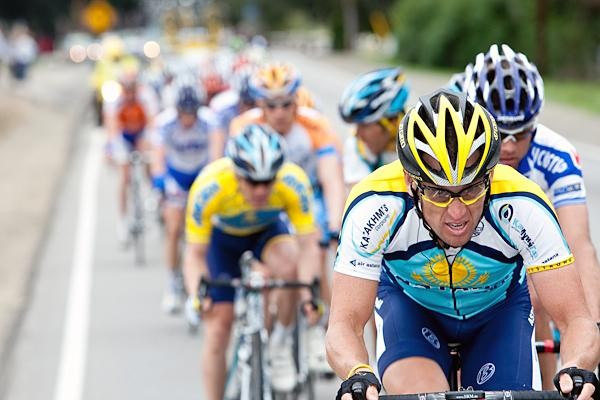AFLD reports Armstrong's behaviour
Lance Armstrong's behaviour during his 24th anti-doping control since returning to the sport may...

Lance Armstrong's behaviour during his 24th anti-doping control since returning to the sport may have landed the American in hot water with the World Anti-Doping Agency (WADA) and French Anti-Doping Agency (AFLD).
L'Equipe has reported that AFLD, which conducted the March 17 out-of-competition test, submitted a report to the International Cycling Union (UCI) and WADA on March 30. The report apparently details the abnormal behaviour observed before and during the surprise visit from the French agency.
UCI communications manager Enrico Carpani told L'Equipe: "The UCI is not competent to judge this case. Since this was a surprise test conducted by a national agency, it is therefore competent to judge."
At the time Armstrong had commented on the test via the social network website Twitter. He had said that blood, urine and hair were taken for analysis, although he didn't mention his reaction to the AFLD visit, simply saying that it was a surprise.
On his return to professional racing, Armstrong had promised a high level of transparency through an individual anti-doping programme to be conducted by the UCLA's Dr Don Catlin. That programme was disbanded on February 12, before Catlin had conducted any testing on Armstrong.
The news comes as discussion on Armstrong's infamous 1999 Tour de France samples and subsequent 2005 testing has been reignited. Speaking to the NYVelocity.com website, Australian sports scientist Michael Ashenden, who assisted in the development of urine testing for erythropoietin (EPO), has refuted claims made about mishandling of the samples.
"One of the things [...] is that the samples weren't analysed properly, that they were analysed using a different protocol than what was used in proper dope controls - and that's just not correct," said Ashenden.
Get The Leadout Newsletter
The latest race content, interviews, features, reviews and expert buying guides, direct to your inbox!
"All of these checks and cross checks were put in place with these samples, so the data is valid," he continued. "The laboratory, I've checked with the people who did the analysis, and I very carefully went through it with them. They're absolutely 100 percent sure that these results are valid."
At the time of writing, Armstrong hadn't responded to news of the AFLD report via a team, personal press release or Twitter.